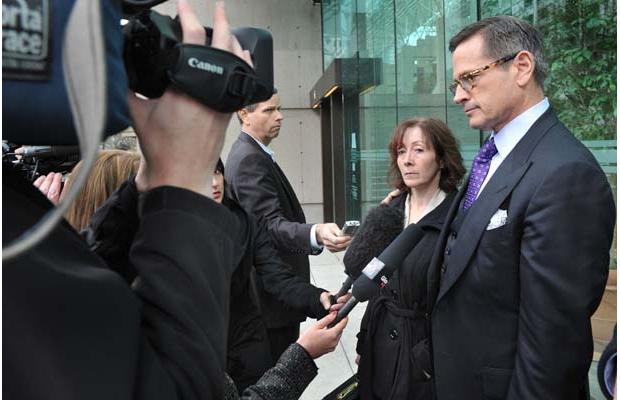Vancouver Family Law Settlements And Agreements
High income and high net worth Vancouver family law lawyer, Lorne MacLean, Q.C. focuses on negotiating, mediating, arbitrating and if necessary litigating complex family law cases. Lorne MacLean, Q.C. heads Vancouver’s top rated family law firm as selected by Top Choice Awards.
Most settlements take some time to negotiate but when completed they are promptly papered in written agreements or Consent court orders. Occasionally parties disagree over the terms of the alleged settlement or over whether any agreement was even reached at all. In these cases a Judge is asked to decide who is right. Our lawyers will help you negotiate a fair settlement but its critical you meet with us before making any deal.

How Do You Enforce Disputed Vancouver Family law Agreements?
Vancouver Family Law Settlements And Agreements discussions are privileged to encourage full and frank discussions without fear that concessions made in negotiations will be raised and used against either side if settlement talks fail.
The recent Supreme Court of Canada case of Union Carbide Canada Inc. v. Bombardier Inc. has established clear rules for when these privileged discussions can be made known in the subsequent court case when parties who are in disagreement over whether a settlement was reached or on what terms a settlement was reached. Disputed Vancouver Family Law Settlements And Agreements can only be enforced or ruled non binding by a court application or under certain circumstances through reference to an arbitrator. What does the judge look at to decide?
Our SCC in Union Carbide made the following summary of the law (taken from the official Court headnote to the decision)
At common law, settlement privilege is a rule of evidence that protects communications exchanged by parties as they try to settle a dispute. It applies even in the absence of statutory provisions or contract clauses with respect to confidentiality. The rule promotes honest and frank discussions between the parties, which can make it easier to reach a settlement. However, a communication that has led to a settlement will cease to be privileged if disclosing it is necessary in order to prove the existence or the scope of the settlement. Both the common law privilege and this exception to it form part of the civil law of Quebec, which applies in this case.
A form of confidentiality is inherent in mediation in that the parties are typically discussing a settlement. This means that their communications are protected by the common law settlement privilege. However, parties can tailor their confidentiality requirements by contract, to exceed the scope of that privilege. Settlement privilege and a confidentiality clause are not the same, and they may in some circumstances conflict. One is a rule of evidence, while the other is a binding agreement; they do not afford the same protection, nor are the consequences for breaching them necessarily the same. While allowing parties to freely contract for confidentiality protection furthers the valuable public purpose of promoting settlement, contracting out of the exception to settlement privilege that applies where a party seeks to prove the terms of a settlement might prevent parties from enforcing the terms of settlements they have negotiated.
To determine whether an absolute confidentiality clause in a mediation agreement displaces this common law exception to settlement privilege, one must begin with an interpretation of the contract. It must be asked whether the confidentiality clause actually conflicts with settlement privilege or with the recognized exceptions to that privilege. Where parties contract for greater confidentiality protection than is available at common law, the will of the parties should presumptively be upheld absent such concerns as fraud or illegality. However, the mere fact of signing a mediation agreement that contains a confidentiality clause does not automatically displace the privilege and the exceptions to it. Where an agreement could have the effect of preventing the application of a recognized exception to settlement privilege, its terms must be clear.
Here is the key paragraph from the judgment on what settlement negotiation details can be disclosed:
“[35] … A communication that has led to a settlement will cease to be privileged if disclosing it is necessary in order to prove the existence or the scope of the settlement. Once the parties have agreed on a settlement, the general interest of promoting settlements requires that they be able to prove the terms of their agreement. Far from outweighing the policy in favour of promoting settlements, the reason for the disclosure — to prove the terms of a settlement — tends to further it. The rule makes sense because it serves the same purpose as the privilege itself: to promote settlements.”








